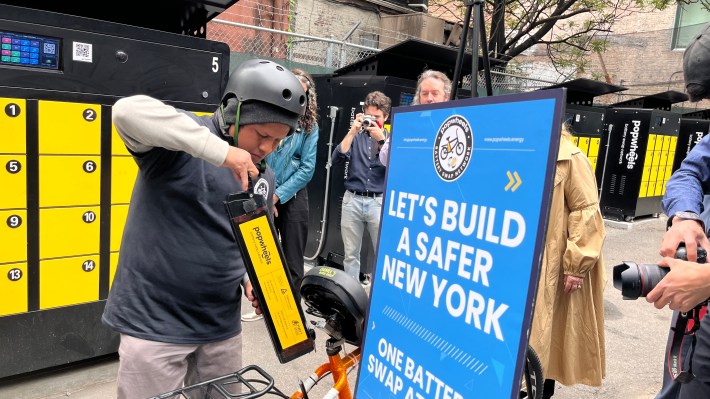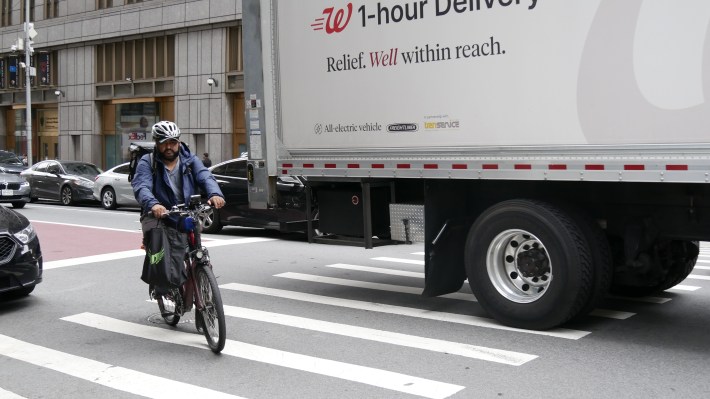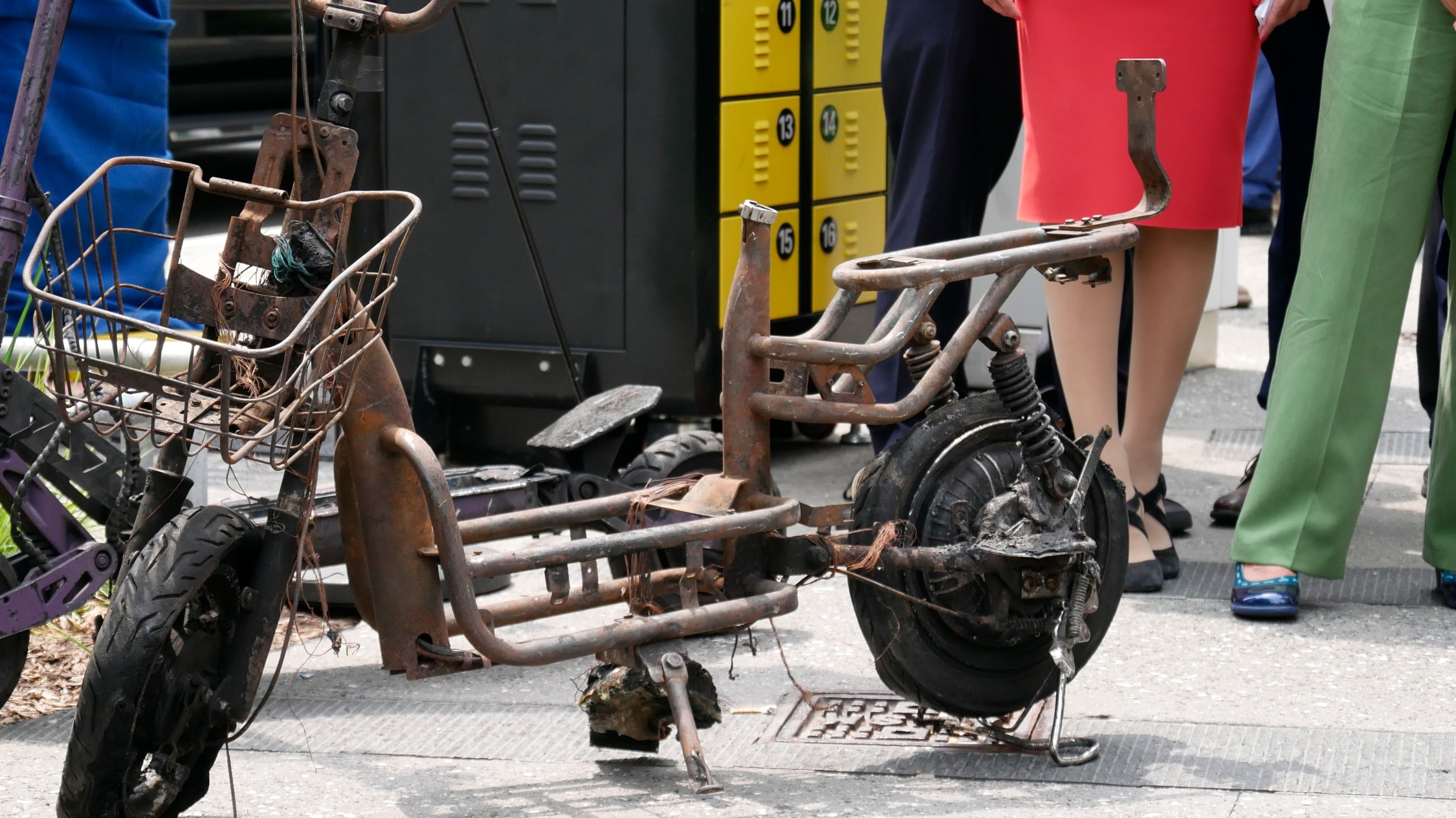Con Edison quietly pulled the plug on a ready-to-go e-bike charging pilot program at four city Housing Authority sites — adding to the city’s overall failure to deliver on its multiple promises of public battery charging infrastructure, even as the amount of lithium-ion battery fires stays stagnant and e-bikes continue to grow in popularity.
Con Ed told stakeholders in April it was cancelling the program after more than a year of work. The news only came to light this week after Streetsblog began making inquiries.
The NYCHA and Con Ed partnership was part of the Adams administration’s March 2023 Charge Safe, Ride Safe Action Plan, which outlined how the city would combat the growing lithium-ion battery fire crisis. But almost three years later, no permanent public infrastructure has been built.
The abandonment of the partnership came with no public announcement from Con Ed or the Adams administration, even though the program was advertised as a part of the city’s response to the battery-fire crisis.
"It’s the anti-'Abundance' agenda," said Melinda Hanson, director of The E-Mobility Project and Brightside, a sustainable transportation consultancy, of the city's botched rollout of public charging, referring to a current trope pushed by writers Ezra Klein and Derek Thompson that argues for loosening regulation to build more.
There were five public battery-charging sites as a part of a six-month Department of Transportation pilot program, but that ended a year ago and the sites have closed. No other public sites have been built and only nine private sites have been approved and build citywide, according to the Fire Department.

The Fire Department has been successful in reducing injuries and deaths from the hard-to-extinguish battery fires, but their number has not meaningfully decreased since the pandemic peak. Through Nov. 17 of this year, there were 249 lithium-ion battery fires recorded by FDNY, resulting in 42 injuries and one death. In all of 2024, there were a total of 279 fires, 99 injuries and six fatalities.
"Given the benefits of micromobility, the urgency of the battery fire crisis, and the fact that we have the safe charging technology available and ready to go, these things should be all over,” said Hanson.
Con Edison and NYCHA confirmed to Streetsblog on Tuesday that the program has been cancelled. Con Edison added that the company has shifted focus to providing incentives to private e-bike charging companies to build charging sites in disadvantaged communities. One such site, operated by PopWheels, opened in July at the Ebbets Field Apartments in Brooklyn.

When Con Ed announced it would fund the NYCHA pilot in March 2023, the company chose four NYCHA campuses — Queensbridge North and South in Queens, De Hostos in Manhattan, and Van Dyke I in Brooklyn – and predicted completion by early 2025.
At the time, Raghu Sudhakara, vice president of Distributed Resource Integration for Con Edison, said that the company wanted to “explore ways to ensure that New Yorkers have access to safe, convenient charging and secure storage,” and that “making micromobility safer and easier will be a plus for the many hard-working people who earn their living delivering food to our homes and businesses.”
The company would not say why it bailed out on funding a small program that would have cost around $2 million based on industry standards. It's unclear if Con Ed's abandonment had anything to do with scandals in the Adams administration. Just two months before Con Ed signaled its departure from the program, Deputy Mayor of Operations Meera Joshi, Health Commissioner Anne Williams-Isom and First Deputy Mayor Maria Torres-Springer resigned, citing "extraordinary events": Mayor Adams's indictment on federal corruption charges.
This pilot program was supposed to begin a gusher of funding for NYCHA to build e-bike infrastructure. In June 2023 the city was awarded a $25-million federal grant to construct even more charging infrastructure on NYCHA campuses.
That grant will be administered by the DOT, which had said the "public e-bike charging program" would grow to "173 locations next to 53 public housing developments ... on public sidewalks, where they will be available to NYCHA residents and the general public."
A year later there has been no progress on the larger NYCHA project.
A source who worked with NYCHA and Con Ed on the since-cancelled pilot told Streetsblog the Housing Authority was waiting to learn from the pilot program before using the $25 million. The delay could cost the city the money since the Trump Administration has been taking back transportation grants that don't fit their car-centric agenda.

It is also unclear if Con Ed's pullout is related to the increasingly confusing web of regulations hamstringing the industry as a whole. Companies that make and install the charging infrastructure necessary for combatting the battery fire crisis can't get FDNY approval for new sites because of constantly shifting regulations that are impossible to follow. In February, the FDNY began requiring a new test to certify battery swap cabinets, but no lab could run the test because it had not yet been certified by the federal Occupational Safety and Health Administration. After Streetsblog exposed this flaw, the FDNY quickly updated its rules, but more questions remain.






